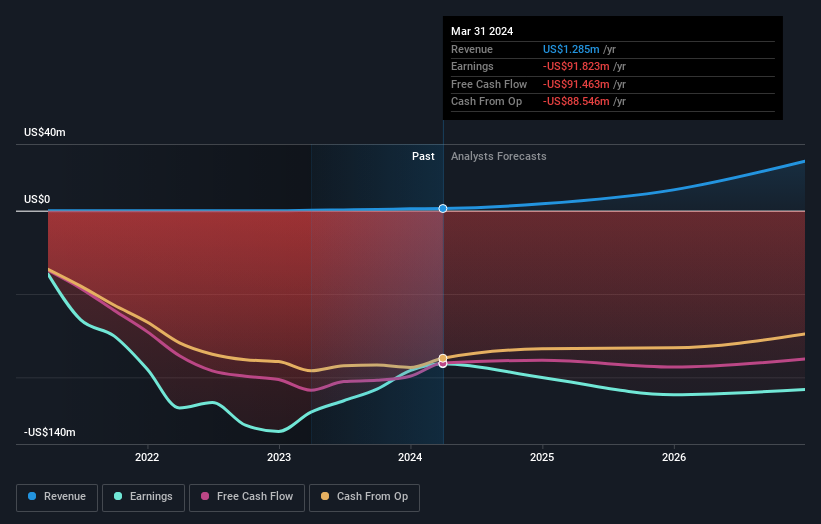Quantum-Si incorporated's (NASDAQ:QSI) top owners are individual investors with 38% stake, while 34% is held by institutions
Key Insights
Significant control over Quantum-Si by individual investors implies that the general public has more power to influence management and governance-related decisions
52% of the business is held by the top 6 shareholders
Every investor in Quantum-Si incorporated (NASDAQ:QSI) should be aware of the most powerful shareholder groups. The group holding the most number of shares in the company, around 38% to be precise, is individual investors. Put another way, the group faces the maximum upside potential (or downside risk).
And institutions on the other hand have a 34% ownership in the company. Institutions often own shares in more established companies, while it's not unusual to see insiders own a fair bit of smaller companies.
Let's delve deeper into each type of owner of Quantum-Si, beginning with the chart below.
Check out our latest analysis for Quantum-Si
What Does The Institutional Ownership Tell Us About Quantum-Si?
Many institutions measure their performance against an index that approximates the local market. So they usually pay more attention to companies that are included in major indices.
We can see that Quantum-Si does have institutional investors; and they hold a good portion of the company's stock. This suggests some credibility amongst professional investors. But we can't rely on that fact alone since institutions make bad investments sometimes, just like everyone does. When multiple institutions own a stock, there's always a risk that they are in a 'crowded trade'. When such a trade goes wrong, multiple parties may compete to sell stock fast. This risk is higher in a company without a history of growth. You can see Quantum-Si's historic earnings and revenue below, but keep in mind there's always more to the story.
We note that hedge funds don't have a meaningful investment in Quantum-Si. Because actions speak louder than words, we consider it a good sign when insiders own a significant stake in a company. In Quantum-Si's case, its Top Key Executive, Jonathan Rothberg, is the largest shareholder, holding 26% of shares outstanding. With 9.0% and 5.7% of the shares outstanding respectively, ARK Investment Management LLC and Nikko Asset Management Co., Ltd. are the second and third largest shareholders.
On further inspection, we found that more than half the company's shares are owned by the top 6 shareholders, suggesting that the interests of the larger shareholders are balanced out to an extent by the smaller ones.
While it makes sense to study institutional ownership data for a company, it also makes sense to study analyst sentiments to know which way the wind is blowing. There is some analyst coverage of the stock, but it could still become more well known, with time.
Insider Ownership Of Quantum-Si
The definition of an insider can differ slightly between different countries, but members of the board of directors always count. Company management run the business, but the CEO will answer to the board, even if he or she is a member of it.
Most consider insider ownership a positive because it can indicate the board is well aligned with other shareholders. However, on some occasions too much power is concentrated within this group.
Our most recent data indicates that insiders own a reasonable proportion of Quantum-Si incorporated. Insiders have a US$53m stake in this US$194m business. We would say this shows alignment with shareholders, but it is worth noting that the company is still quite small; some insiders may have founded the business. You can click here to see if those insiders have been buying or selling.
General Public Ownership
With a 38% ownership, the general public, mostly comprising of individual investors, have some degree of sway over Quantum-Si. While this size of ownership may not be enough to sway a policy decision in their favour, they can still make a collective impact on company policies.
Next Steps:
I find it very interesting to look at who exactly owns a company. But to truly gain insight, we need to consider other information, too. To that end, you should be aware of the 2 warning signs we've spotted with Quantum-Si .
If you would prefer discover what analysts are predicting in terms of future growth, do not miss this free report on analyst forecasts.
NB: Figures in this article are calculated using data from the last twelve months, which refer to the 12-month period ending on the last date of the month the financial statement is dated. This may not be consistent with full year annual report figures.
Have feedback on this article? Concerned about the content? Get in touch with us directly. Alternatively, email editorial-team (at) simplywallst.com.
This article by Simply Wall St is general in nature. We provide commentary based on historical data and analyst forecasts only using an unbiased methodology and our articles are not intended to be financial advice. It does not constitute a recommendation to buy or sell any stock, and does not take account of your objectives, or your financial situation. We aim to bring you long-term focused analysis driven by fundamental data. Note that our analysis may not factor in the latest price-sensitive company announcements or qualitative material. Simply Wall St has no position in any stocks mentioned.
Have feedback on this article? Concerned about the content? Get in touch with us directly. Alternatively, email editorial-team@simplywallst.com

 Yahoo Finance
Yahoo Finance 

